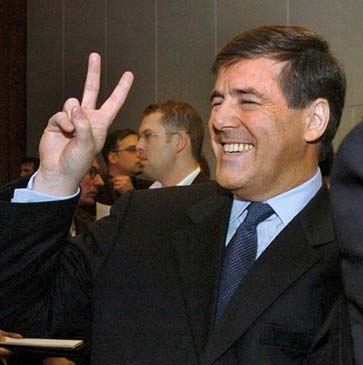Search trend factors as of 2009-11-24:
Gold 1.0
Silver 0.57
Platinum 0.18
Palladium 0.04
Rodium 0.0
Notes and observations about the stock market
Gold 1.0
Silver 0.57
Platinum 0.18
Palladium 0.04
Rodium 0.0
Two events led me to investing many years ago. One is the death of my granny and the other are magical invisible boots I used to sell on ebay called J-boots. The boots made your metame run fast within the medium of Everquest. I noticed an emerging shadow market of the already shadowy economy within the game Everquest, and I thought I would take a crack at finding an area to exploit that I could dominate in. There were too many sellers already so I had to get very specific and sell one particular item. I chose the J-boot because everyone had to have them, and the major sellers were not bothering to sell it due to its complicated delivery procedure. So in a fairly short period of time I had amassed a decent amount of money from death and magic virtual boots. I then decided to take that money and push it into the markets. I knew nothing about stock markets, and the year I made my first trade was 2001. Both bad and good timing.
...
For me the market has two modes of operation. Unsafe and slightly more unsafe.
When the market is plain old unsafe, I will swing trade with hold times of a few days to a few weeks, to possibly but very infrequently, a few years.
If the market is even more unsafe I will day trade only with hold times of a few minutes to all day…. every once in a while I go overnight with something that has momentum.
...
My trading style is illusion and momentum. Illusion is my basis for swing trading. Almost all value is an illusion, and I trade off people’s hopes as they relate to that illusion.
Momentum is for day trading, which is either behavioral in terms of pure price action or news driven. In the end the two blend together into a messy giant sundae, and I just try and get a few bites before it becomes a sloppy disaster.
...
1. First thing to learn is how to take a loss. How do you react? If you fall apart and its on your mind 100% of the time, then quit or change investing styles. Once you learn to how to take a loss you are ready to try trading.
2. If you are 18 to 22 and considering becoming a financial professional you are making a huge mistake. The world is divided up between creators and destroyers and those in the financial world are nothing but destroyers, myself included. Luckily it is not my background nor does it consume 100% of my time. The other half of my life is spent trying to create things. I suggest you always keep something else in your back pocket if you choose to journey as a trader, something that matters to human beings.
3. There is little or no truth and little or no value. If the stock market were functioning properly, then stock prices would not move very far and fast except in extreme cases and a public company would exist as an agreement between management and shareholders. All companies would pay dividends as soon as they achieved profit as a way of paying back those that financed their company. Sounds odd right? Thats how it should work but it doesn’t, so remember that all values are an illusion, and its your job to be a magician and make trades that profit off the best illusions.
4. Read Reminiscences of a Stock Operator. Its a great story and will make you feel like trading is akin to swashbuckling and piracy. It also lets you know who you are up against. Remember no one is on your side. Its you versus the world when you are trading for yourself. Don’t bother with any other financial books; just read novels, history, magazines, manga, cartoons, anything. Maybe check out Naseem Taleb, but his “luck” of finding a black swan makes him era specific, so his current books won’t be as useful in a few years. There is nothing worse than being a trader or a lawyer and going home only to talk about trading or the law. Fill your life with other things.
5. They always say don’t rely on luck, don’t hope, and use fact not intuition. I thrive on Luck, Hope, and Intuition, in fact I am hoping my intuition can find me a lucky trade tomorrow.

"Is it possible to have too much ambition? Is it possible to be too successful?" Blankfein shoots back. "I don’t want people in this firm to think that they have accomplished as much for themselves as they can and go on vacation. As the guardian of the interests of the shareholders and, by the way, for the purposes of society, I’d like them to continue to do what they are doing. I don’t want to put a cap on their ambition. It’s hard for me to argue for a cap on their compensation."
So, it’s business as usual, then, regardless of whether it makes most people howl at the moon with rage? Goldman Sachs, this pillar of the free market, breeder of super-citizens, object of envy and awe will go on raking it in, getting richer than God? An impish grin spreads across Blankfein’s face. Call him a fat cat who mocks the public. Call him wicked. Call him what you will. He is, he says, just a banker "doing God’s work"



This memorial website was created in the memory of our loved one, Kirk Stephenson, who died on Thursday, September 25, 2008.20 Minuten, 2008-09-29: Millionär wirft sich vor Schnellzug
...
New Zealand born, he arrived in London in 1983 when he was in his early 20's as an SG Warburg graduate trainee and he never left. After his stint in he City, he went on to work as CFO and COO at several well-respected, large organisations including Amersham Plc, Coats Plc and the international iaw firm, Freshfields. Latterly he had worked as a director for the private equity firm Olivant set up in 2006, which came to prominence earlier this year as one of the potential bidders for Northern Rock.
Zusammen mit Luqman Arnold, der für kurze Zeit Konzernchef der UBS war, gründete Stephenson vor zwei Jahren die Beteiligungsgesellschaft Olivant Advisers. Diese übernahm im Juni dieses Jahres für über eine Milliarde Euro 2,5 Prozent der UBS-Aktien – ein folgenschwerer Fehler, wie sich mit dem Kurszerfall der UBS-Aktien herausstellte. 250 Millionen Euro soll Stephenson verloren haben.Olivant: Statement 1 October 2008
Olivant Limited has previously indicated that it is interested in shares in UBS representing 2.78% of the company. These shares were held through Lehman Brothers International (Europe) (“LBIE”). In light of the appointment of administrators to LBIE, Olivant Limited is evaluating the position of its interest in UBS and is in contact with the administrators to secure these assets.Olivant: Kirk Stephenson 2 October 2008
Our thoughts and condolences are with his wife and family.London Evening Standard, 2008-10-02: Mystery of ‘lost’ shares Olivant left at Lehman
City Spy hears it was “in the small print” that they could be moved on, that Lehman could use them to raise cash. Arnold said: “We are fortunate that we are a private company, and a company which has substantial paid-up capital, which means that this is not a drama for us.”FinishingWell, 2008-12-01: When the Pressure Became Too Great...
Oh no? The shares have vanished and you can't vote? Sounds pretty dramatic. Did Stephenson know Lehman could take them? If not, why not? How did Arnold find out and how did he react? Questions, questions. Unfortunately, the COO cannot answer them.
As Olivant's chief operating officer, Stephenson had approved the Lehman contract, and had left the firm and was negotiating a separation agreement. Several friends offered that Stephenson had recently told them that he was under enormous pressure at work. Still, his death was a tremendous shock to a wide circle of friends, not only in business, but also art and politics. Only a few weeks before Lehman's bankruptcy, Stephenson and his wife had gone to Verona, Italy, to see the opera with a friend who heads a London hedge fund. On Sunday, September 21st, Stephenson had attended his regular weekly tennis game. His playing partner said he didn't talk about specific problems, but made it clear that "things weren't easy" at work. His game was off and his spirits subdued. "He seemed down, pale, and had other things on his mind," Mr. Maher said.One year later and no news of the UBS shares... only some merger announcements of some Russian banks at the Olivant press release page. Hmm, those, Northern Rock, UBS, Lehman Brothers...
Clearly, the pressure had become too great. Stephenson was known to be fastidious about everything, from his neat handwriting to his ironed handkerchiefs. Mr. Maher, his tennis partner recalled him organizing the bills in his wallet so they faced the same way and were ordered in size. "Control was a very important feature for him," Mr. Maher offered. And clearly, the economic meltdown, and his financial demise, were too much for him to handle
The stocks and bonds of Lehman’s London brokerage customers, used as collateral to borrow more money, were frozen on September 15. About 3,500 clients, including 700 hedge funds, couldn’t get access to an estimated $65 billion of assets. PricewaterhouseCoopers, Lehman’s UK bankruptcy administrator, is still sorting out who should get paid and how much. Some firms have closed, and others may have to wait as long as a decade to get their assets back, Tony Lomas, the PwC partner in charge of the UK administration, said in August.His legacy
It took only 10 days for the ice-nine to get to Kirk Stephenson, chief operating officer of Olivant Ltd., a London private-equity firm run by former UBS AG Chairman Luqman Arnold. On September 25, Stephenson, 47, jumped in front of a train going 125 mph at a station in Taplow, 45 kilometers west of London.
The coroner’s office for the county of Buckinghamshire ruled the death a suicide. Stephenson, a native of New Zealand, was despondent about the financial crisis and talked about killing himself one week after Lehman’s demise, according to a statement from his wife read at the coroner’s inquest.
Lehman Brothers International (Europe) was Olivant’s prime broker. It held the firm’s 2.78-percent stake in UBS, Switzerland’s largest bank by assets, according to a statement from Olivant on October 1. The shares were worth 1.6 billion francs ($1.44 billion) at the time.
The hedge fund lock-up led the UK to reconsider its procedures when firms fail. While Lehman’s broker-dealer in the US stayed out of bankruptcy long enough to process many of its trades, the business seized up in the UK.
“In the US, everything was wrapped in cotton wool for four days,” said PwC’s Lomas. In the UK, “everything failed come 7:56 a.m. that Monday morning.”
The UK had an advantage in attracting hedge fund assets before the Lehman bankruptcy. While US prime brokers face limits on how much they can loan hedge funds, those rules could be circumvented with overseas units like Lehman’s in London. Some US clients didn’t know they were customers of Lehman Brothers International (Europe).
“If you didn’t pay attention to what you were signing, you would have missed it,” said Michael Romanek, principal at Rise Partners Ltd., which arranges financing for funds from London. “It was called enhanced prime brokerage, where they could be more accommodating with more leverage or loans. It just took signing some extra papers in New York. Most people didn’t realize it.”
No material is available.